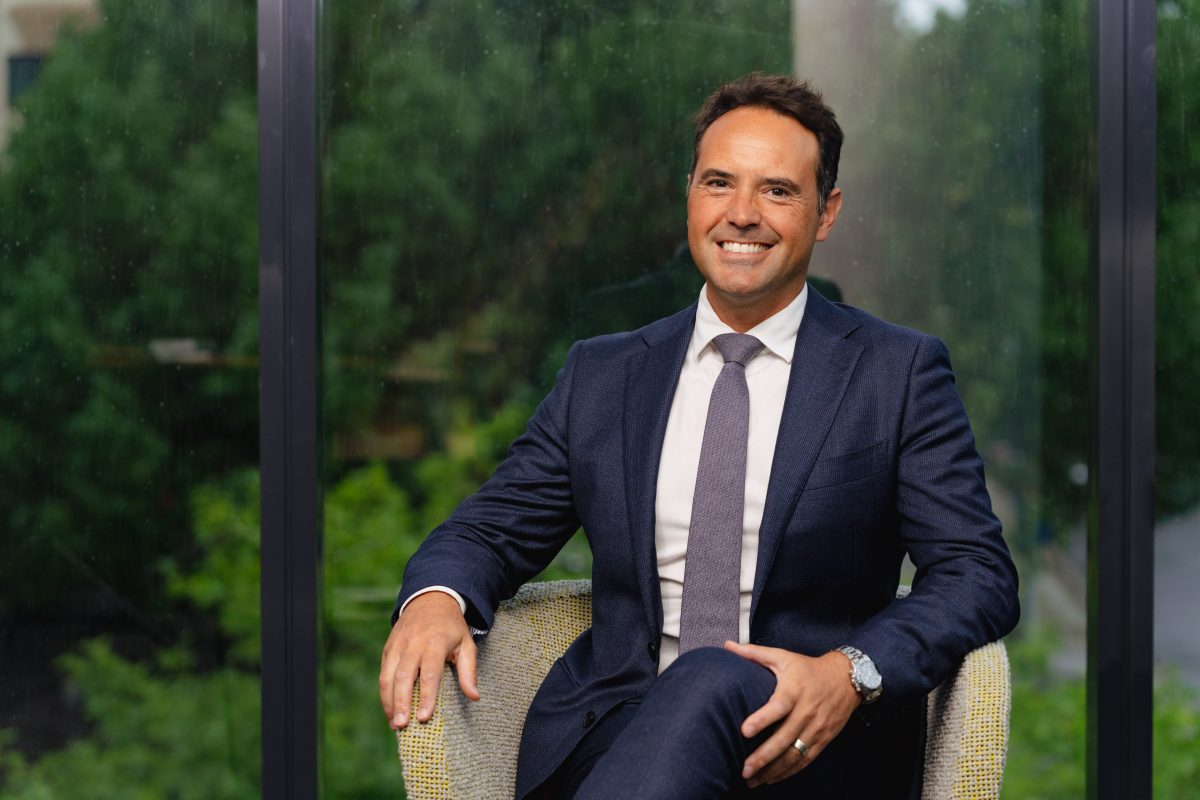
MV Law partner Massimo Di Maio has been working in the franchise law sector for more than 12 years. Photo: Liv Cameron.
Long-awaited reforms to the Franchising Code of Conduct and Competition Laws are reining in big-business ”cowboys” and making owning a franchise in Canberra more attractive than ever.
Recent changes will improve access to information about franchising and impose greater penalties on franchisors who breach the Code of Conduct.
Commercial law specialist and MV Law partner Massimo Di Maio said that for a long time, business people had baulked at the idea of operating a franchise because of the high-profile horror stories around franchisees facing emotional and financial ruin.
He said the new laws would help protect franchisees when they entered into an agreement with a franchisor who largely controls how the business is run – including the branding, shop design and fitout, suppliers and the operating system.
“The new legislation is trying to fill the gap of imbalance of power between the franchisor and the franchisee,” Mr Di Maio said.
“In the past, some franchisors have acted as ‘cowboys’, taking advantage of the fact that franchise agreements unfairly favoured them.
“The new code and new competition laws provide much broader protection for prospective franchisees, as well as the ability to access more significant information about the franchisor and the business before they sign the franchise documents.”
Under the recently amended competition laws, if franchisors give franchisees information that is misleading or deceptive they could face hefty fines of up to $50 million for each breach or three times the benefit gained. And, if the courts cannot determine the value of the benefit, the fine can be up to 30 per cent of the adjusted turnover during the breach period (at a minimum, the preceding 12 months).
“The fines are so astronomical that franchisors would need to consider several times before making a misleading or deceptive representation,” Mr Di Maio said.
As part of the reforms, franchisors are now required to apply for their registration on an online franchise disclosure register and to provide prospective franchise owners with a key fact sheet to highlight important information that is in the disclosure document.
The additional disclosure under the current code will increase franchisor transparency and access to disclosure information, which will assist prospective franchise buyers to make an informed decision before entering a franchise agreement.
Mr Di Maio said the new laws, including those that apply under the new unfair contract terms regimen, would also prevent franchisors from having vague terms and conditions in the franchise agreement that could allow them to make changes to their operating manual and systems “willy-nilly”.
“Previously, franchisors could demand franchisees fork out huge sums of money to change their branding, shop fitout or computer software system,” he said.
“Now, any changes to the operating standards, manual or the franchise system will need to be justified to reasonably protect the legitimate interests of the business.”
The reforms came about following ongoing complaints from franchisees to the Australian Competition and Consumer Commission (ACCC), which led to a two-year parliamentary inquiry into the sector and the release of a 370-page report containing more than 70 recommendations for changes to the code of conduct.

Franchisees will be better protected under new laws, making now a good time to consider taking on a franchise. Photo: File.
The new code has been in effect since April 2022, and the recent changes to the competition law began on 9 November, 2022, except for the new unfair contract terms regimen, which will start on 10 November, 2023, thanks to a 12-month grace period to enable business operators, including franchisors, to fix their documentation before the deadline.
While operating a franchise comes with its risks and challenges, it can also offer fantastic opportunities for sole operators through to large businesses employing hundreds of people. From gyms and coffee shops to burger joints, dog washes and clothing outlets, the list of franchise options is endless.
Mr Di Maio said the franchising space in Canberra was huge, with “many shops in the Canberra Centre operated as a franchise business”.
“It’s an industry that generates about $170 billion in revenue and employs approximately 600,000 people,” he said.
“About 26 per cent of retail businesses are franchises, and many are small mum-and-pop operators, so it’s good to know that legislature is really looking after them at this stage.
“It’s never been a better time to become a franchisee in Canberra and surrounding areas.”
Mr Di Maio and his team can offer advice about the new laws and the contents of their franchise agreement to anyone thinking of buying a franchise business. He said they should also seek financial advice before signing anything.
Mr Di Maio has been part of the corporate and commercial team at MV Law since 2020 and has been working in the franchise space for more than 12 years.
His experience spans large-scale business transactions, contract law, intellectual property and licensing arrangements across both the private and not-for-profit sectors, including a single acquisition of 35 franchised businesses valued at $40 million.
MV Law’s team of franchising lawyers are experts in the field, with a strong understanding of the realities of owning, buying, selling and setting up franchises.
















